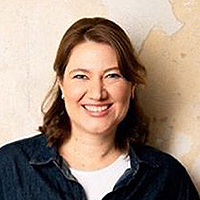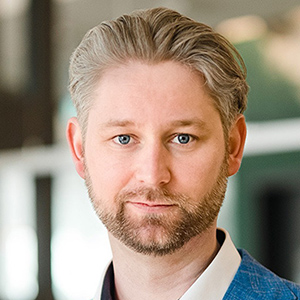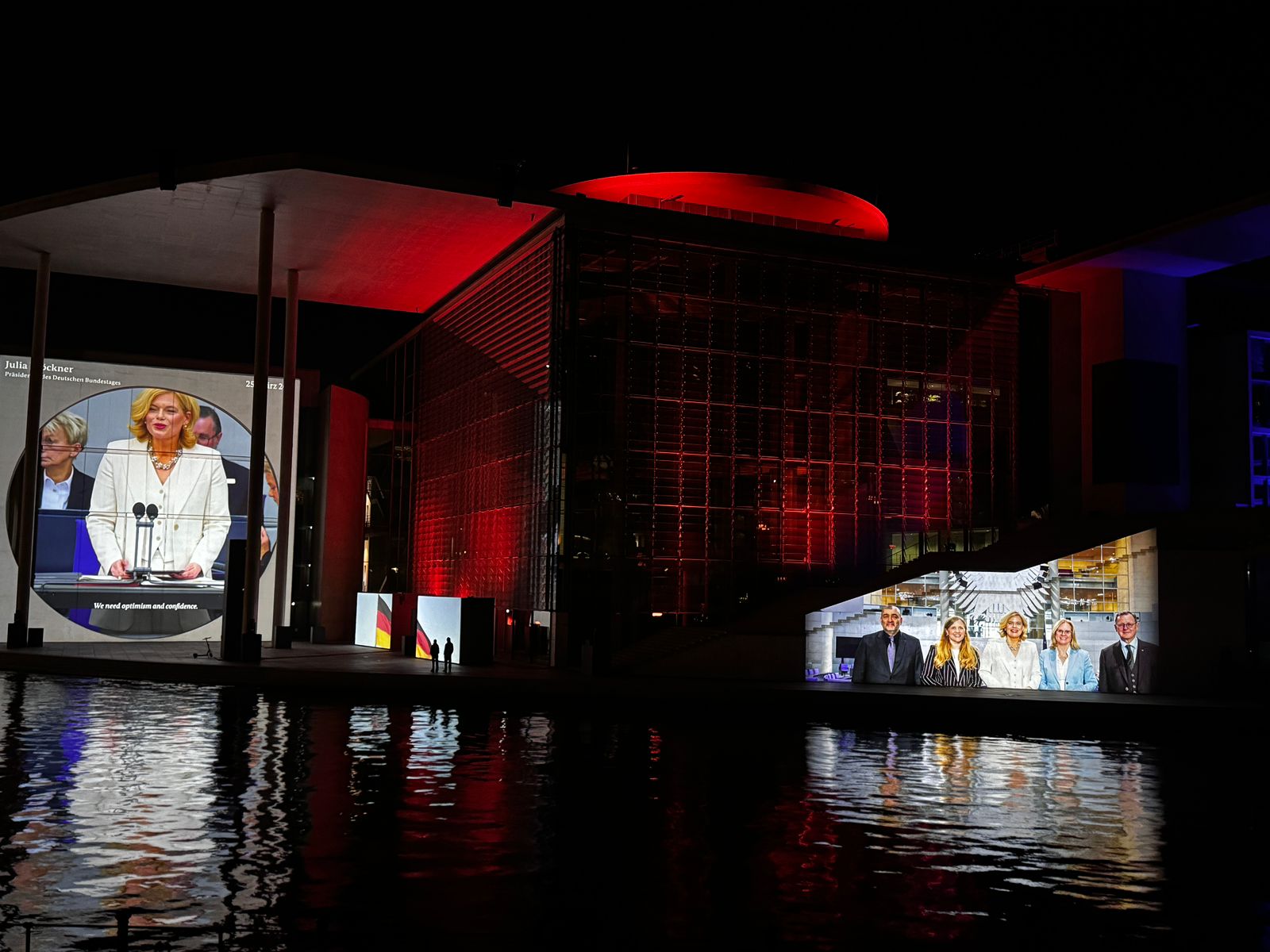Rethinking Europe’s Energy Security, OECED's Latest Global Trends, India’s Response to Trade War, West Recognizing Palestine, How the US Shapes Europe's Fate, Strengthening Global South
What caused a delay in the EU–US joint trade statement?
Disputes over the EU’s digital rules (Digital Markets Act and Digital Services Act).
 Dear Readers,
Dear Readers,
Welcome to the Diplomacy Berlin Newsletter
This week, we focus on Europe’s energy and geopolitical challenges, featuring insights from Sebastian Zutz, Senior Consultant at Navos – Public Dialogue Consultants. Key topics include Europe’s energy security amid shifting supply routes, the role of high-performance storage and battery technologies, and the strategic importance of partnerships with Latin America to secure critical resources for the green transition.
We also highlight OECD’s Q1 2025 trade statistics, showing robust G20 trade growth driven by the EU and U.S., and The Diplomat’s coverage of India’s strategic response to Trump-era tariffs, reflecting global trade recalibrations. Meanwhile, a podcast episode from The Rest Is Politics examines Western recognition of Palestine, and the Geopolitical Economy Report video explores U.S. influence on Europe’s energy and strategic autonomy.
We also congratulate Namibia (August 26), Moldova (August 27), Malaysia (August 31), and Uzbekistan (September 1) on their national independence celebrations!
Finally, we celebrate International Dog Day by spotlighting HonestDog, Germany’s platform for connecting families with healthy, well-cared-for dogs.
If you would like to submit content for upcoming newsletters or press releases, please send it to editorial@diplomacy.berlin.
With best regards,
Sigrid Arteaga
Power, Resources, and Trust: Rethinking Europe’s Energy Security
Sebastian Zutz is a Senior Consultant for energy and resource related issues and at Navos – Public Dialogue Consultants. He counts with working experience on communicating big scale energy or waste storage projects and has worked with different countries in Latin America mostly on policy and energy related contexts. You can follow him on LinkedIn.

With your experience in energy consulting, what do you see as the most pressing challenge for Europe’s energy security in the next decade: supply diversification, storage technologies, or managing climate-related risks?
It is a complex challenge that we face in Europe and Germany. First and foremost, it is necessary to clarify what exactly is meant by energy security. The production, transport, and storage of energy are not equally developed everywhere. Even here in Germany, there are significant differences between regions. In some parts of the country, a lot of energy is produced, but it is needed at the other end of it. So, how does energy get from point A to point B? Now imagine the differences across Europe. We need to rethink the energy system.
There is already some diversification. Southern countries primarily rely on solar power, France on nuclear energy, Poland on coal, and the Nordic countries on wind and hydropower. Germany relied on natural gas for years and will soon shift to LNG and some wind. Hydrogen is the next bis thing. The distribution of generated energy is the central problem. A base load must be generated to ensure there is always enough energy in the system. The source of this energy is initially irrelevant. The power grid system in Europe, and especially in Germany, is not designed to quickly absorb large amounts of electricity or transport it over long distances. In the worst case, this can lead to an overload and a blackout. The result of such an overload could be seen in Spain in April 2025.
Essential for a functioning power grid system are a high-performance network and storage capacities that can store energy during peak times or release energy when demand increases. There are many types of energy storage, but the most efficient way to store energy is to store electrical power in „batteries.“ This is why research into high-performance batteries is being conducted everywhere. New battery technology will mean a revolution for energy transmission and the way we move in the future. I therefore hope that the power grid system across Europe will be modernized, and large sums will be invested in battery research: only in this way can we counteract future deindustrialization in Europe.
You’ve worked extensively on issues like lithium, CO₂, and waste storage. From your perspective, what is the biggest overlooked challenge Europe faces in securing critical resources for its green transition, and how can partnerships with Latin America address this gap?
Waste can also be a resource. In public discourse, CO₂ and waste are not particularly popular topics. We are still light-years away from a true and efficient circular economy – despite all political declarations. This has nothing to do with a „green transition“ but should instead be viewed as a security policy aspect. Raw materials are finite, and not everything can be recycled.
New materials are constantly needed, as well as the know-how for extraction or more efficient processing. New technologies are emerging and require different raw materials than before. Latin America can play an important role here. Europe and Latin America are so similar in culture and education. Unfortunately, this fact often does not resonate in the minds of many decision-makers here in Germany. We are on the threshold of a new „world order,“ so it is not just about materials. The people (la gente) from the region are the most valuable resources of the future. We can only face new challenges together.
Having worked at the intersection of diplomacy and public communication, how can policymakers better explain complex energy and resource security issues to the public to build trust and resilience?
That’s a good question. The answer goes beyond the scope of this format. First and foremost, political decision-makers should understand the issues they have to decide on. Unfortunately, this is not always the case. If you can’t explain something in a few simple sentences, you haven’t understood it yet. Unfortunately, this often leads to mistrust among all stakeholders (the public, companies, institutions).
The second step should be transparency. When we talk about energy and resource security, we mean interventions in the environment and people’s living conditions (e.g., mining, oil production, power plants, or wind turbines).
Those who can explain the necessity of certain projects at an early stage are likely to meet with approval. Those who fail to do so will learn the hard way that communication on key energy security projects has changed fundamentally.
OECD International Trade Statistics Q1 2025: Latest Global Trends
The OECD’s International Trade Statistics for the first quarter of 2025 reveal notable global shifts: G20 merchandise trade rose, with exports up 2.0% and imports up 3.1%, driven by strong performance in the European Union and the United States. North American trade was particularly robust, as US exports grew by 3.5% and imports surged by 19.0% in anticipation of higher tariffs. Europe’s export growth was led by the UK (+4.7%) and the EU (+2.8%), with Germany’s exports up 0.8%. East Asia saw mixed outcomes, as China’s exports increased slightly (1.1%) but imports fell by 3.7%. Services trade results were varied: US exports posted mild growth (+0.4%), while Canada, France, and Germany experienced contractions. Read the full report as a pdf on OECD’s webiste.
Navigating the Tariff Tempest: India’s Strategic Response to the Trade War
Amid escalating Trump-era tariffs, India now faces a steep 50% duty on its exports to the United States—an immediate consequence of its continued reliance on Russian oil and its increasingly assertive economic stance. The Diplomat’s article, “Can India Survive the Trade War?”, explores New Delhi’s multi-layered strategy: easing tensions with Washington without compromising its red lines, broadening trade partnerships beyond the U.S. and China, and reinforcing domestic economic reforms. With U.S. tariffs hitting pharmaceuticals, semiconductors, and a wide range of manufactured goods, the piece underscores how the Modi government is working to safeguard energy security, preserve strategic autonomy, and uphold India’s global stature. Read the full article on The Diplomat.
Why the West is Finally Recognising Palestine
Episode 434 of The Rest Is Politics unpacks a major diplomatic shift as the UK, France, and Canada formally recognize Palestinian statehood. Hosts Rory Stewart and Alastair Campbell examine how the humanitarian crisis in Gaza and Israel’s hardline policies have accelerated Western consensus, sparking renewed debate over the two-state solution. The conversation also connects these moves to President Trump’s sweeping tariffs on Brazil, India, and Switzerland, highlighting the global ripple effects of shifting alliances and hardline economic strategies. Listen for a comprehensive breakdown of the new factors compelling West to recognize Palestinian statehood on Apple Podcasts.
Exploitation and Vassalization: How the US Shapes Europe's Fate
The Geopolitical Economy Report episode “How the USA exploits Europe, treating its ‚allies‘ like vassals” examines the EU’s growing economic and strategic dependence on Washington under Donald Trump. Political economist Ben Norton highlights how one-sided trade and energy deals, punitive tariffs, and pressure to boost military spending have entrenched U.S. dominance, forcing Europe to rely on costly American LNG, cut welfare for defense budgets, and sacrifice strategic autonomy. He argues that Trump’s aggressive tactics, from “unequal treaties” to Nord Stream’s sabotage, reveal the transatlantic elite’s vested interest in Atlanticism. Without a decisive shift, Norton warns, Europe risks cementing its role as a U.S. vassal. Watch the full video on Geopolitical Economy Report’s Youtube channel.
EU Stress Test Confirms Stronger European Banks
The Financial Times reports that the EU’s latest banking stress test shows European banks are now far stronger than in previous years, with healthier profitability, robust capital buffers, and greater resilience against potential shocks. This matters because a stable banking sector underpins Europe’s ability to weather geopolitical uncertainty, rising interest rates, and external economic pressures. For policymakers, it signals that the euro area’s financial system is better prepared to support investment, credit flows, and economic growth key elements for Europe’s strategic autonomy and credibility in global financial governance. Read the full report on Financial Times.
BRICS Summit 2025: Strengthening Global South Cooperation for Inclusive and Sustainable Governance
The 17th BRICS Summit in Rio de Janeiro (July 2025) underscored the bloc’s push for multilateralism, international law, and a fairer global order. With 11 members including newcomers Indonesia, Egypt, Ethiopia, Iran, and the UAE—plus nine partners, leaders adopted a Joint Declaration with 126 commitments on hunger eradication, climate action, technology, peace, and security. Key economic outcomes included calls to reform IMF quotas and expand emerging economies’ role in global finance. The summit also condemned U.S. and Israeli military actions in Iran and Gaza, while backing peace efforts in Syria and Sudan. Read the takeaways and projections on the Stimson Center website.
The Berlin-based German Institute for International and Security Affairs (SWP), founded in 1962, is one of Europe’s largest and most influential foreign policy think tanks. It advises the Bundestag, the Federal Government, and international bodies such as the EU, NATO, and UN. Known for rigorous, evidence-based analysis, SWP provides policy recommendations on foreign, security, and international politics, and maintains a liaison office in Brussels to engage with EU and NATO institutions. For more information, visit their official website.
2025 ESIL Annual Conference on “Reconstructing International Law” – Berlin
The 2025 ESIL Annual Conference on “Reconstructing International Law” will take place 11–13 September 2025 at the Department of Law, Freie Universität Berlin, with pre-conference Interest Group workshops on 10–11 September. Although the main conference is fully booked, the workshops remain open for registration. The event will explore the evolving landscape of international law, providing insights for policymakers, legal professionals, and academics. For full details, including programmes and registration, visit the official ESIL conference website.
European Rule of Law Conference 2025 – Berlin
Join Re:Constitution on 15–16 September 2025 for a dynamic two-day forum exploring the future of democracy, human rights, and the rule of law in Europe. Engage with scholars, policymakers, civil society, and media through interactive sessions on democratic resilience, authoritarianism, migration, lawfare, and more. Connect with initiatives at the Democracy & Rule of Law Marketplace and exchange ideas to tackle today’s political challenges. Register now for free on the official website!
Open-Air Film Projection “The German People – A Parliamentary Search for Traces”
Today, we visited the open-air film projection at the Marie-Elisabeth-Lüders-Haus in Berlin, and it was an amazing experience. The building’s façade came alive with light, sound, and laser effects in a 30-minute show tracing Germany’s parliamentary history — from the empire and Weimar Republic, through dictatorship and division, to reunification.
The setting by the Spree made the evening even more memorable, and the fact that it’s free makes it accessible for everyone. Screenings take place twice every evening until October 3rd. We highly recommend everyone in Berlin to visit — it’s a unique mix of history, culture, and summer atmosphere.

This week, stop by My Deli Love in Berlin’s Tiergarten for a tasty vegetarian or vegan breakfast or lunch. The café serves fresh bagels, wraps, salads, smoothie bowls, and homemade treats—popular picks include the Avocado Bagel, Peanut Slaw Wrap, Caprese Bagel, and rich brownies. With a bright, friendly atmosphere, both indoor and terrace seating, and a menu full of plant-based options and superfood drinks like turmeric lattes and acai smoothies, it’s a great spot for a quick healthy bite or a relaxed start to the day. Discover their latest menu and more on their official website to plan your next visit.
Celebrate International Dog Day with HonestDog: HonestDog, founded in Berlin, is Germany’s trusted platform for finding healthy, well-cared-for dogs from over 2,000 vetted breeders and shelters. Focused on transparency, animal welfare, and responsible breeding, HonestDog supports families before, during, and after adoption with health records, expert advice, and lifelong guidance. Discover your new best friend, explore care resources, and join a community redefining how dogs find loving homes at HonestDog.
